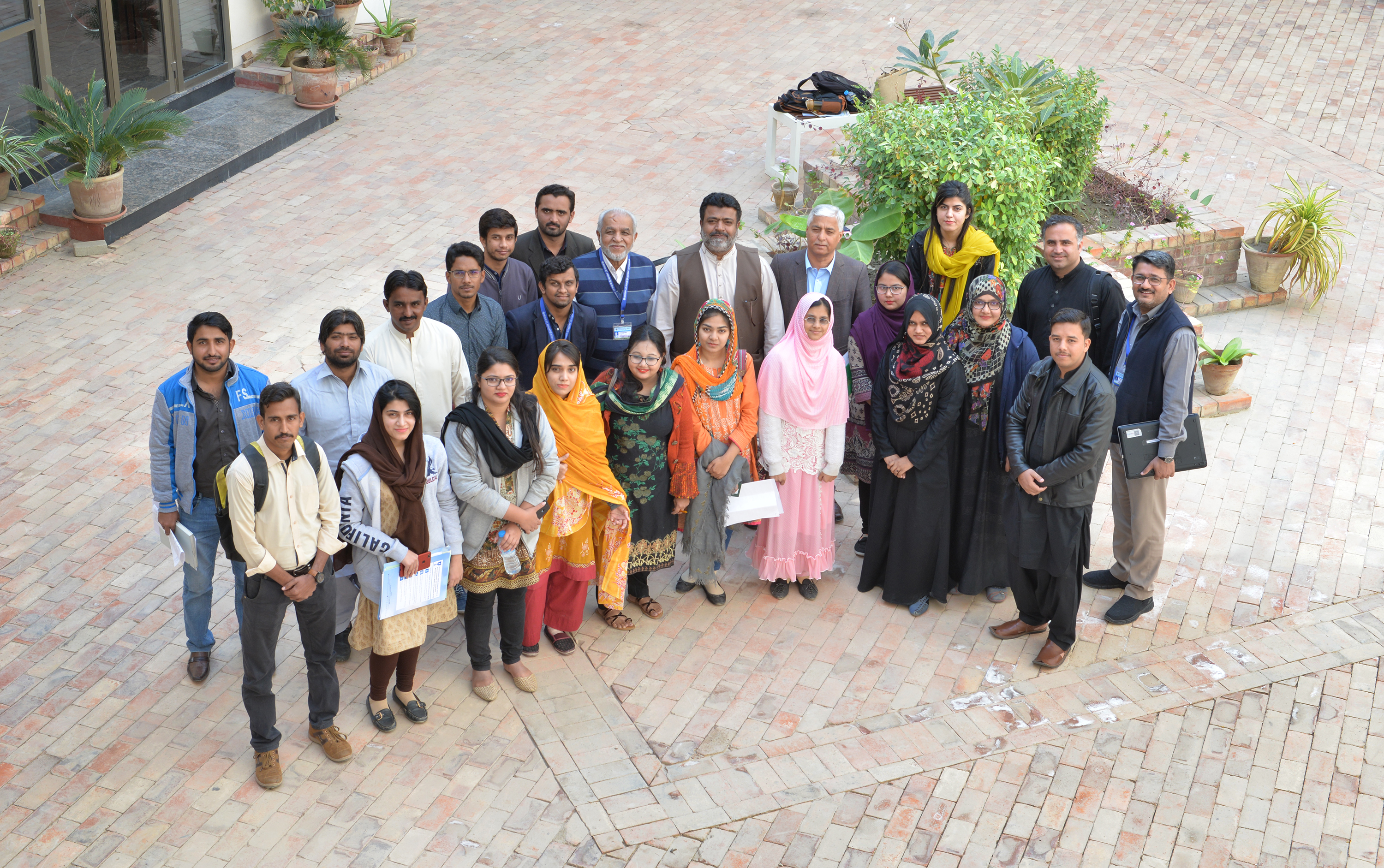
Worldwide, women are disproportionately affected by issues of water scarcity and sanitation. Consequently, adequate female representation in research and policy is especially important to ensure a future where clean water is available to all.
Recognizing the critical role women play in advancing water security, the USAID-funded U.S.-Pakistan Center for Advanced Studies in Water has been intentional in pursuing a gender balance in its programming since the Center's founding in 2014. The 11 women and 11 men who traveled from Jamshoro, Pakistan to study at the University of Utah and Colorado State University this Spring are a testament to those efforts–they are the first group of Exchange scholars in the program to represent parity across genders.
"From the start, there was the challenge of enrolling female students," said Dr. Bakhshal Lashari, project director at Mehran University of Engineering and Technology. He remarked that water research is not a field that female students in Pakistan traditionally show interest in. "In year one we brought a number of female students in and now we have almost 34 percent [females enrolled in USPCASW at MUET]. We're really excited, but of course, there is more work to do."
Achieving gender parity on the Exchange program is a milestone for the Center–one that indicates the quality of students in both genders is rising and leading to equal representation based on merit. U Civil Engineering professor and USPCASW mentor Jennifer Weidhaas noted that "We know we have been successful in our gender equity efforts, when we don’t try to select candidates based on gender and yet we still end up with a gender balanced group."
USPCASW continues to strive to create a space that is welcoming and equitable to all students. "We are mainstreaming inclusion into all USPCASW programs and policies. This focus is having positive benefits for all professors and students involved in USPCASW by increasing awareness, reducing implicit bias and promoting gender parity across all partner institutions," said Steve Burian, U Civil Engineering professor and USPCASW project director.
The Center continues to develop the Gender Equity program and Women’s Resource Center at MUET, has fostered social interaction by creating a cafeteria on MUET's campus where women and men are welcome to eat together, and actively seeks applicants from all underrepresented populations, including socio-economic and religious minorities. "We have invited people from all over the country to participate in our program, not just Sindh," noted Lashari. "The big challenge was how to reach out. But we've organized the entry test centers all over the country so that applicants can appear at their convenience all over Pakistan."
Speaking to the student experience at MUET, Water, Sanitation & Health Sciences scholar Marvi Sharma said "initially I was nervous about gender preferences, but I realized that there is equal opportunity for both genders in this center. They really encouraged female students and provide [an] environment where women benefit from different opportunities. This built in me and other female candidates the confidence to move shoulder by shoulder with men, setting behind the engraved norm about females being inferior."
________
PHOTO | Spring 2019 Exchange scholars and faculty at MUET before departing Pakistan for Exchange experiences in Utah and Colorado. Courtesy Mehran University of Engineering and Technology.
